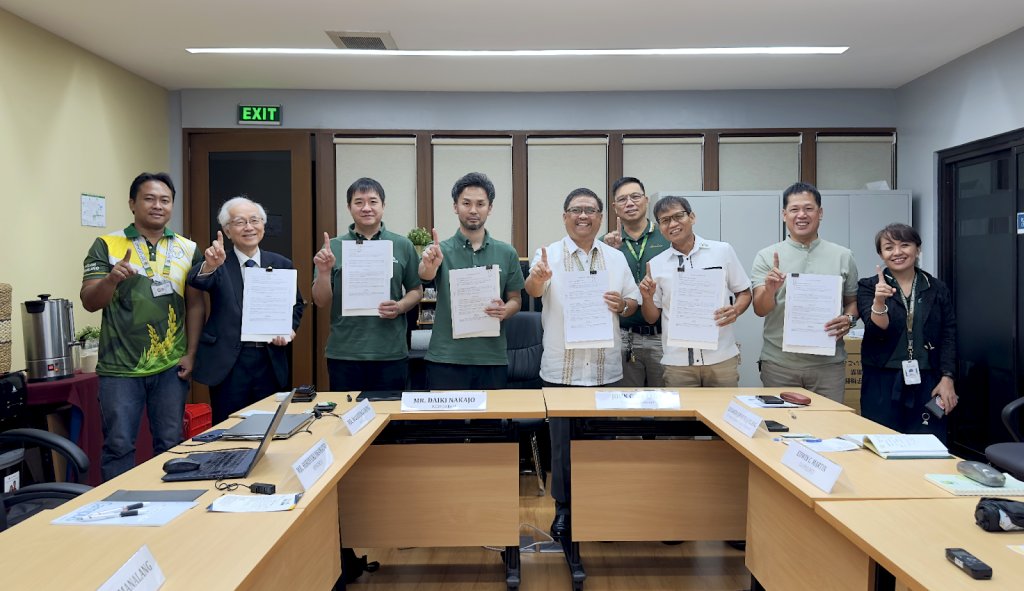
To provide an environment-friendly alternative to controlling weeds in rice fields, Philippine Rice Research Institute (PhilRice) has partnered with Japan-based NEWGREEN Inc. for the field testing of a solar-powered robot called Aigamorobo.
Under a Memorandum of Agreement, NEWGREEN Inc. will provide two robot units for testing at PhilRice’s Central Experiment Station in Science City of Muñoz, Nueva Ecija, which will run from the incoming wet season to next year’s dry season.
Studies show that when left uncontrolled, weeds can reduce rice yields by 44-96% as weeds compete with rice plants for essential resources such as nutrients, sunlight, and water. To manage this, farmers rely on herbicides, further increasing production costs that are already on the rise.
Edwin C. Martin, career scientist and project lead, said that using solar-powered weed-control robots can help farmers cut down on herbicide use, protecting their health and the environment. He added that these technologies reduce exposure to harmful chemicals and prevent pollution of nearby water sources.
Aigamorobo operates autonomously from 6 a.m. to 4 p.m. and is most effective within the first 20 days after planting when weed growth is at its peak. Designed to work in fields with at least 5cm of water, the robot also supports wet direct seeding, which reduces transplanting and minimizes labor costs.
“If the robot proves effective in controlling weeds and improving rice growth and yield in our local setting, it can help increase harvests and reduce production costs,” he said.
The agreement was recently signed by Daiki Nakajo, NEWGREEN Inc. president; Hiroyuki Iwamatsu, advisor; and Woolyong Chong, company engineer; Dr. John C. de Leon, PhilRice executive director; and Dr. Eduardo Jimmy P. Quilang, OIC-deputy executive director for research.
Field testing started on March 26, followed by a technology demonstration to about 700 farmers during PhilRice’s Lakbay Palay on March 27.




